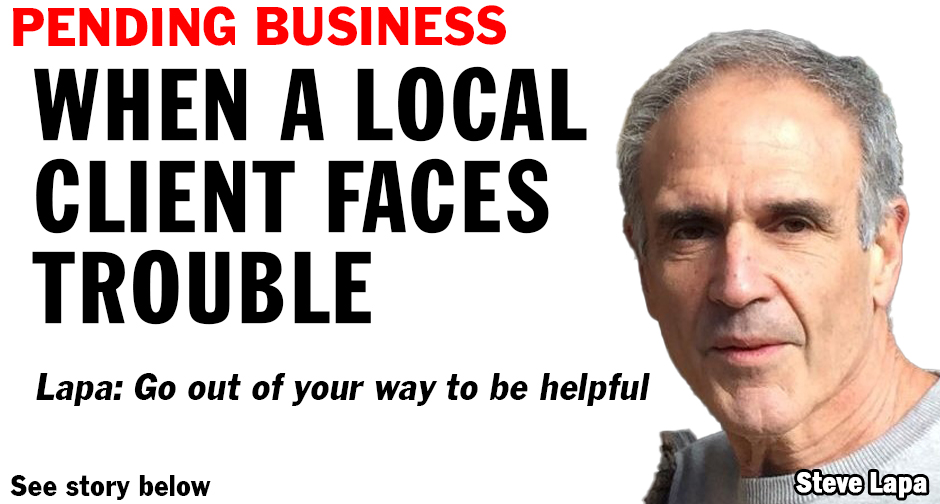By Steve Lapa
Lapcom Communications Corp
President
Can you define “crisis?”
Let’s start with “highly challenging,” move to “difficult,” layer in “nonstop pressure” and quickly fast forward to “intense circumstances.”
This is just from the outside looking in. From the inside looking out the crisis owns the clock and the emotions of its victims. Nothing else matters until the crisis is resolved.
Chances are your sales meetings have never addressed how to work with a local advertiser who is experiencing a marketing crisis. And that is because most managers have minimal experience working through a local advertiser’s marketing crisis.
Large-scale businesses typically coordinate consulting firms, experts, and major ad agencies. Think Tylenol, Chipotle, even VW. But chances are your local direct advertiser may not have the time to coordinate a full-blown crisis management team and responding to their call is now in your in box.
Recently, I found myself knee-deep in executing a plan to help manage a large-scale crisis. The experience was an eye-opener. Hopefully, you can learn from what is next. Here are suggested steps:
— Communication is critical. Listen carefully, be empathetic, clarify all goals that may be hazy and finally get a clear understanding of any timelines.
— Collaborate. Be clear with everyone on your team about the situation. Review internal protocols for copy, production, available inventory, and pricing.
— Long-Term vs. Short-Term. When an advertiser needs to get the word out quickly and efficiently, the temptation to raise rates or forced packaging is real. It is guaranteed that your advertiser will remember the team that grabbed an oar to help guide them to a safe harbor as opposed to the team that grabbed a hammer to nail the budget to the wall.
— Coordinate. Stay in contact with your advertiser. Remember, the crisis owns the clock and your client is focused on solving the crisis, so common sense counts.
— When in doubt take the simple route. If copy is a problem, suggest options. If credit is a problem, suggest a plan. If a talent balks, come up with a back-up. In a crisis, hurdles become mountains and climbing mountains takes months of training. Keep the solution path simple and easy to navigate.
— This too shall pass. Your goal in any local marketing crisis should be to become an ally, a trusted, dependable resource so that when the crisis passes your relationship is cemented.
Take a minute to review and expand on those six take-aways. Selling in a crisis environment is rarely a simple experience. Hopefully, you will be a little better prepared when a marketing crisis strikes.
Steve Lapa is the president of Lapcom Communications Corp. based in Palm Beach Gardens, FL. Lapcom is a media sales, marketing, and development consultancy. Contact Steve Lapa via email at: Steve@Lapcomventures.com
Share this with your network
 digital content programming, production, and broadcasting processes while creating stickier listener environments and more opportunities for advertisers to engage with them.” Audacy chief technology officer Sarah Foss says, “As the nation’s second-largest radio broadcaster, we’re always integrating cutting-edge technologies into our stack to deliver the best experiences for our 200 million monthly listeners and more efficiencies to our business. This partnership underscores our commitment to building the future of digital audio, and we’re thrilled to see it start coming to fruition.”
digital content programming, production, and broadcasting processes while creating stickier listener environments and more opportunities for advertisers to engage with them.” Audacy chief technology officer Sarah Foss says, “As the nation’s second-largest radio broadcaster, we’re always integrating cutting-edge technologies into our stack to deliver the best experiences for our 200 million monthly listeners and more efficiencies to our business. This partnership underscores our commitment to building the future of digital audio, and we’re thrilled to see it start coming to fruition.”



